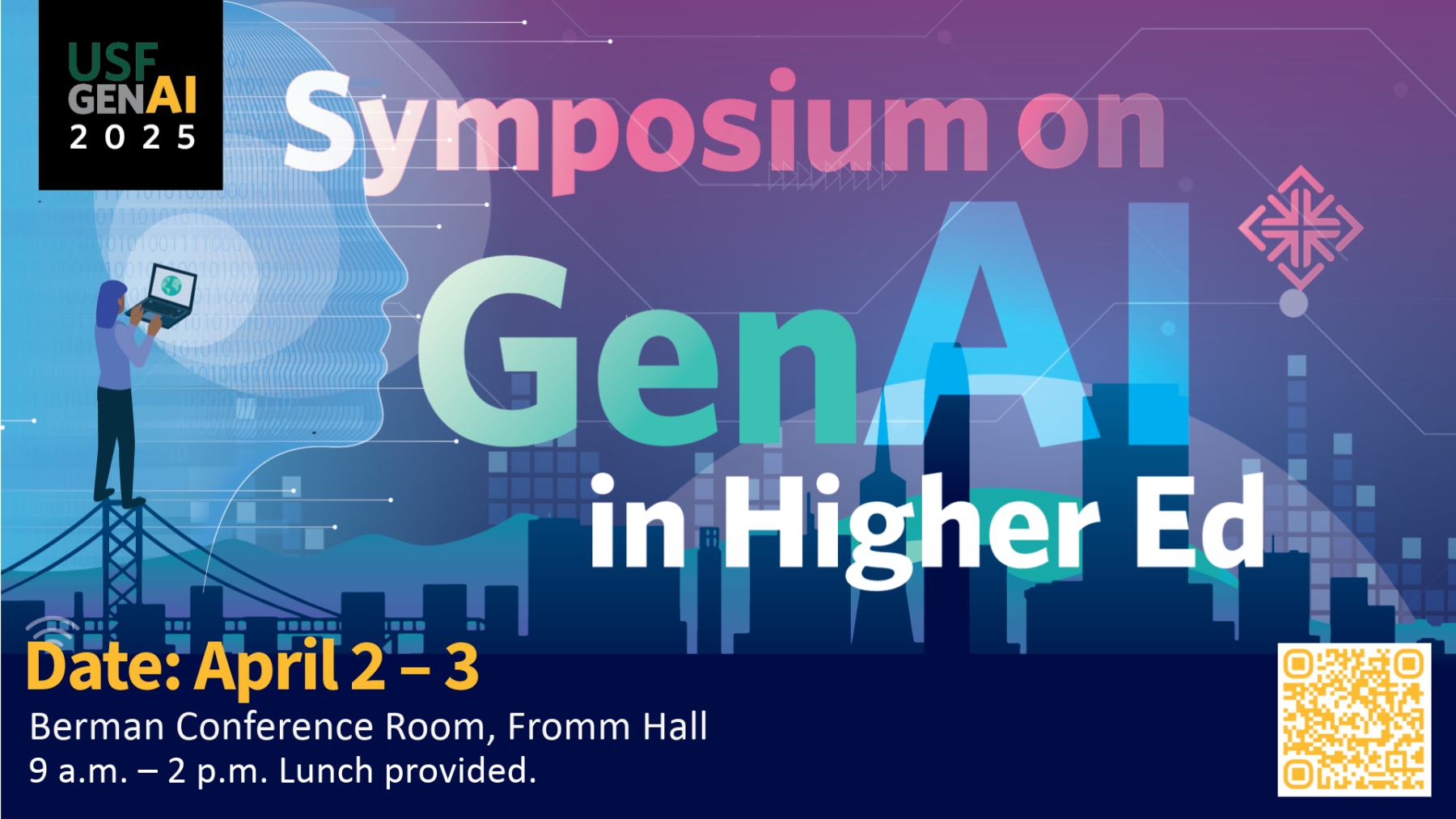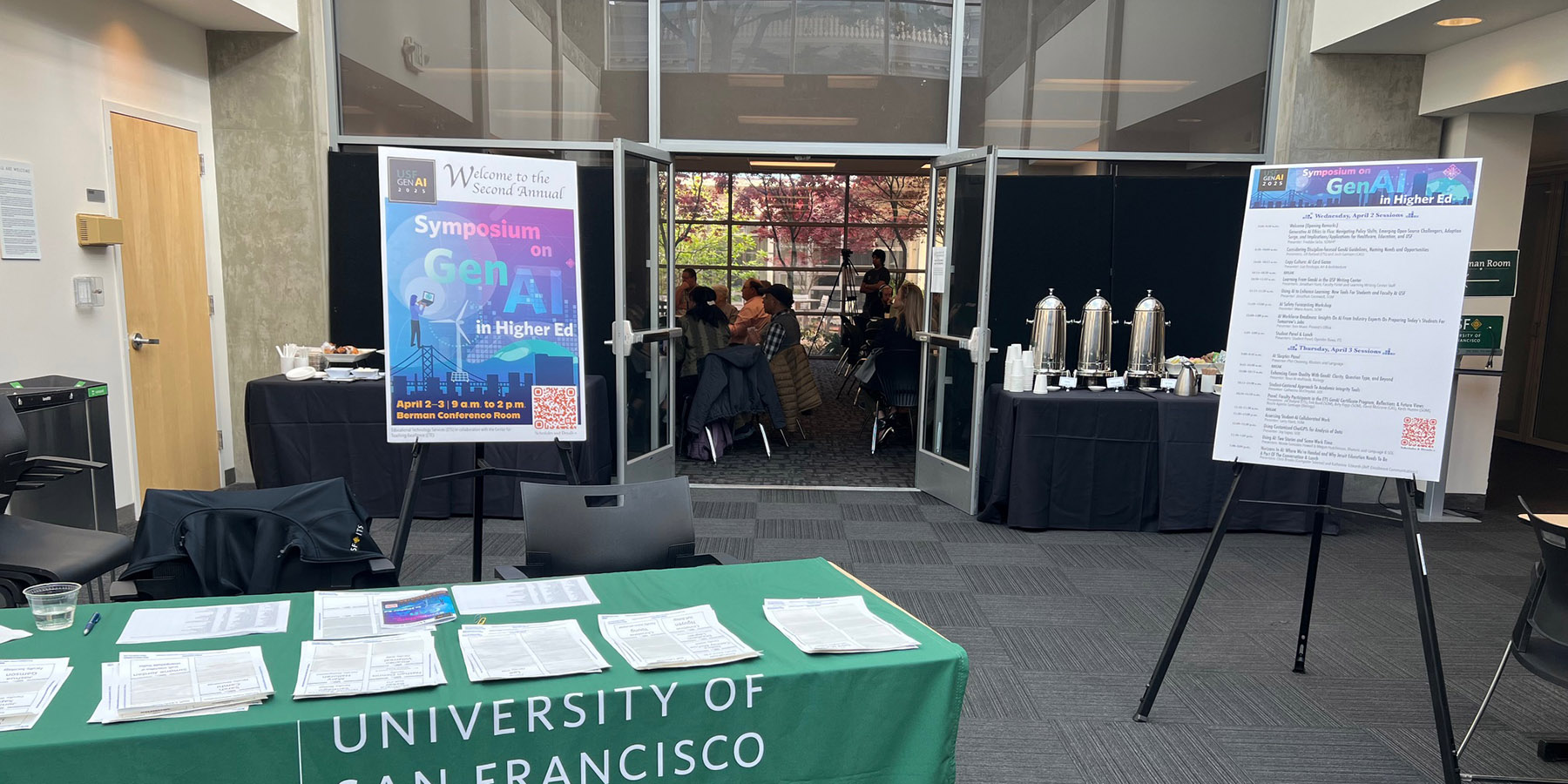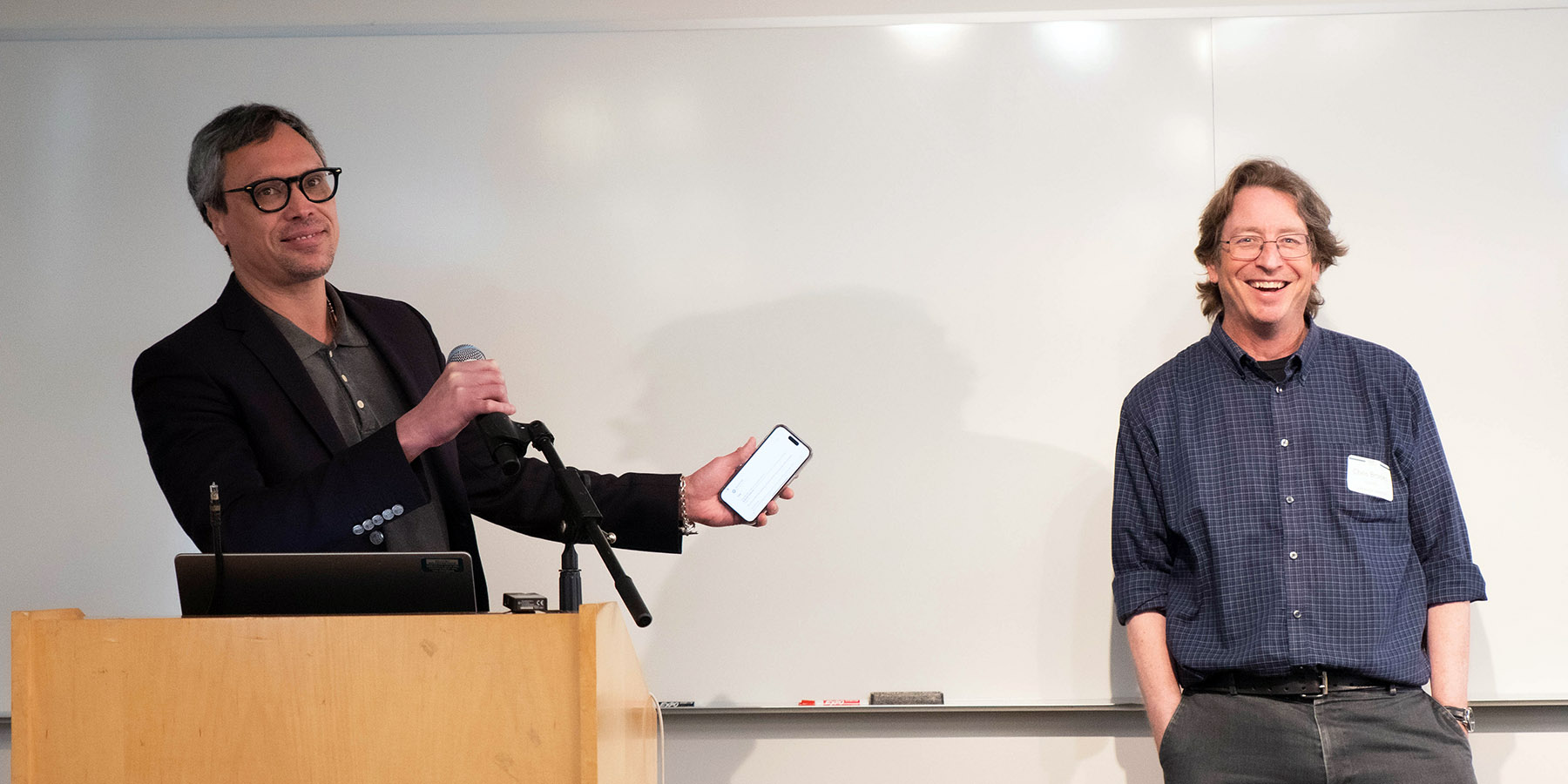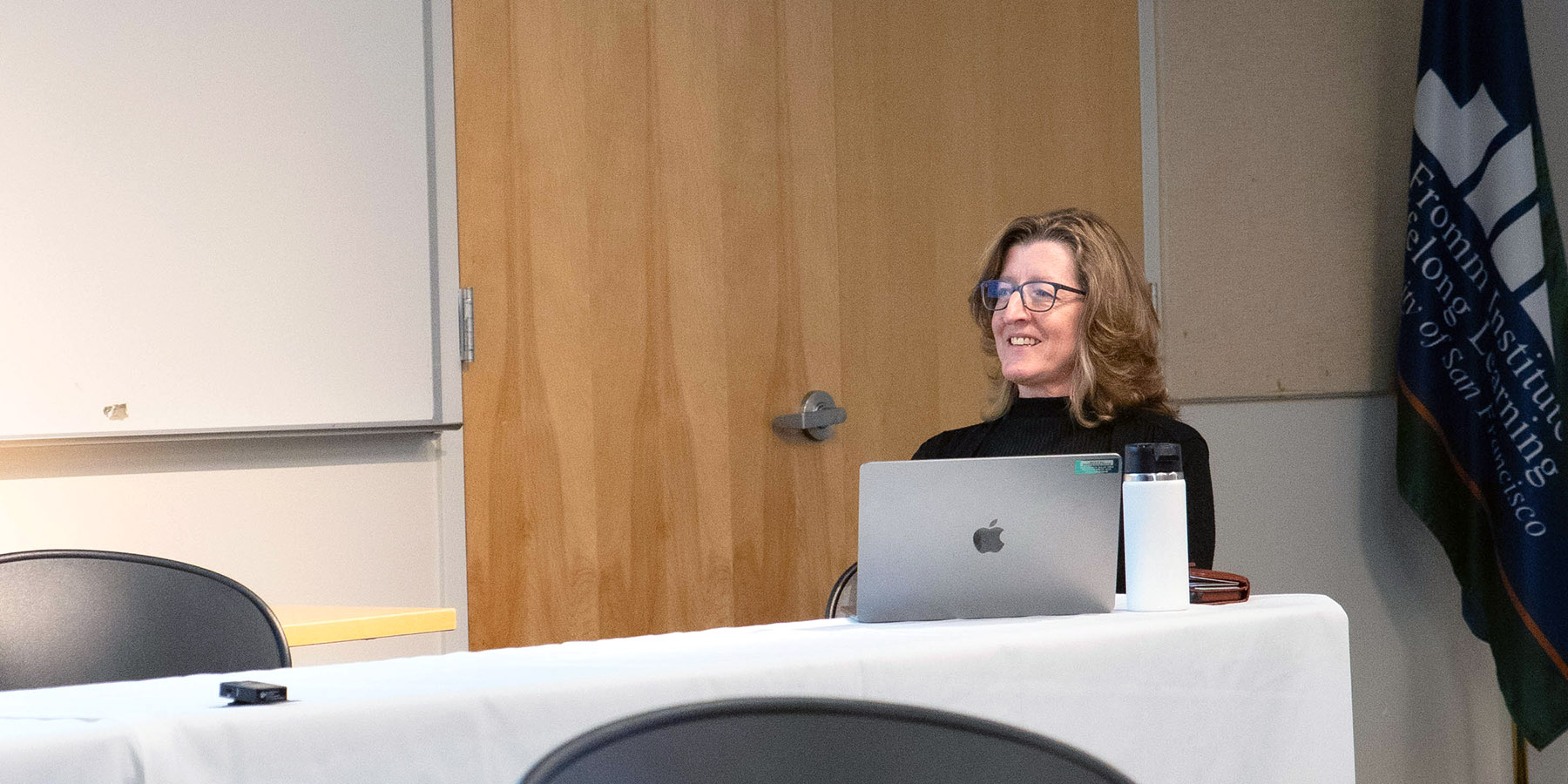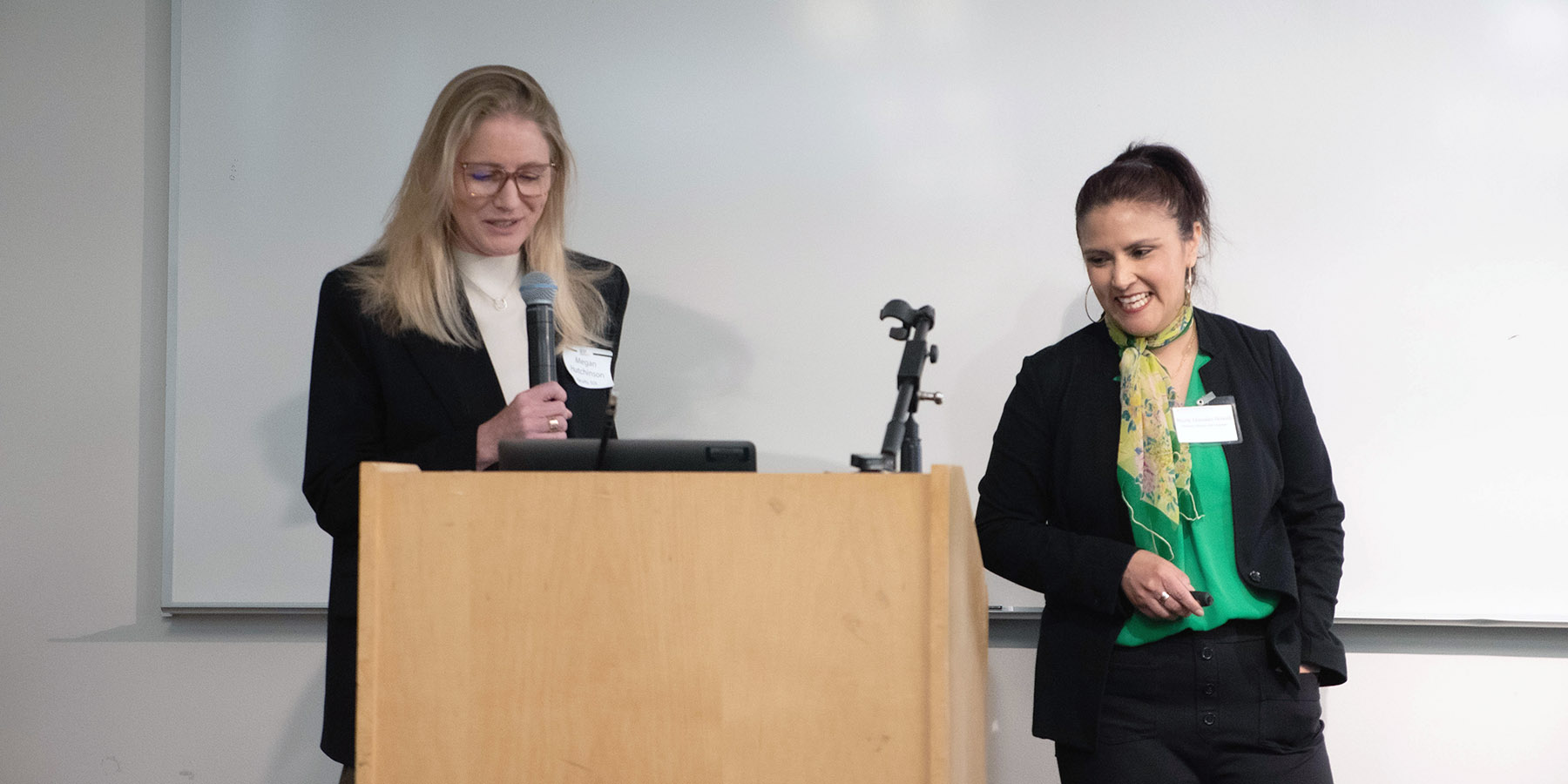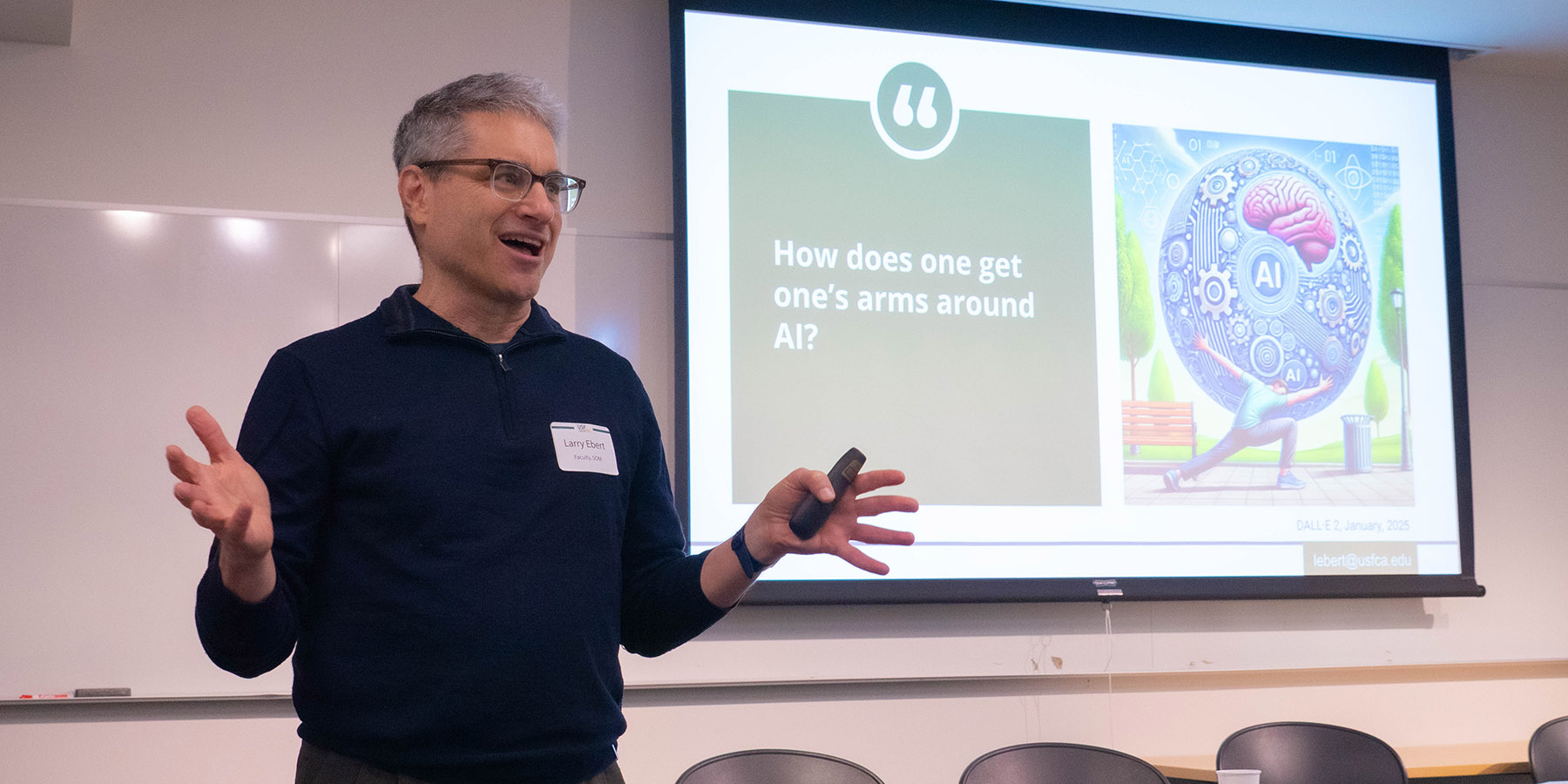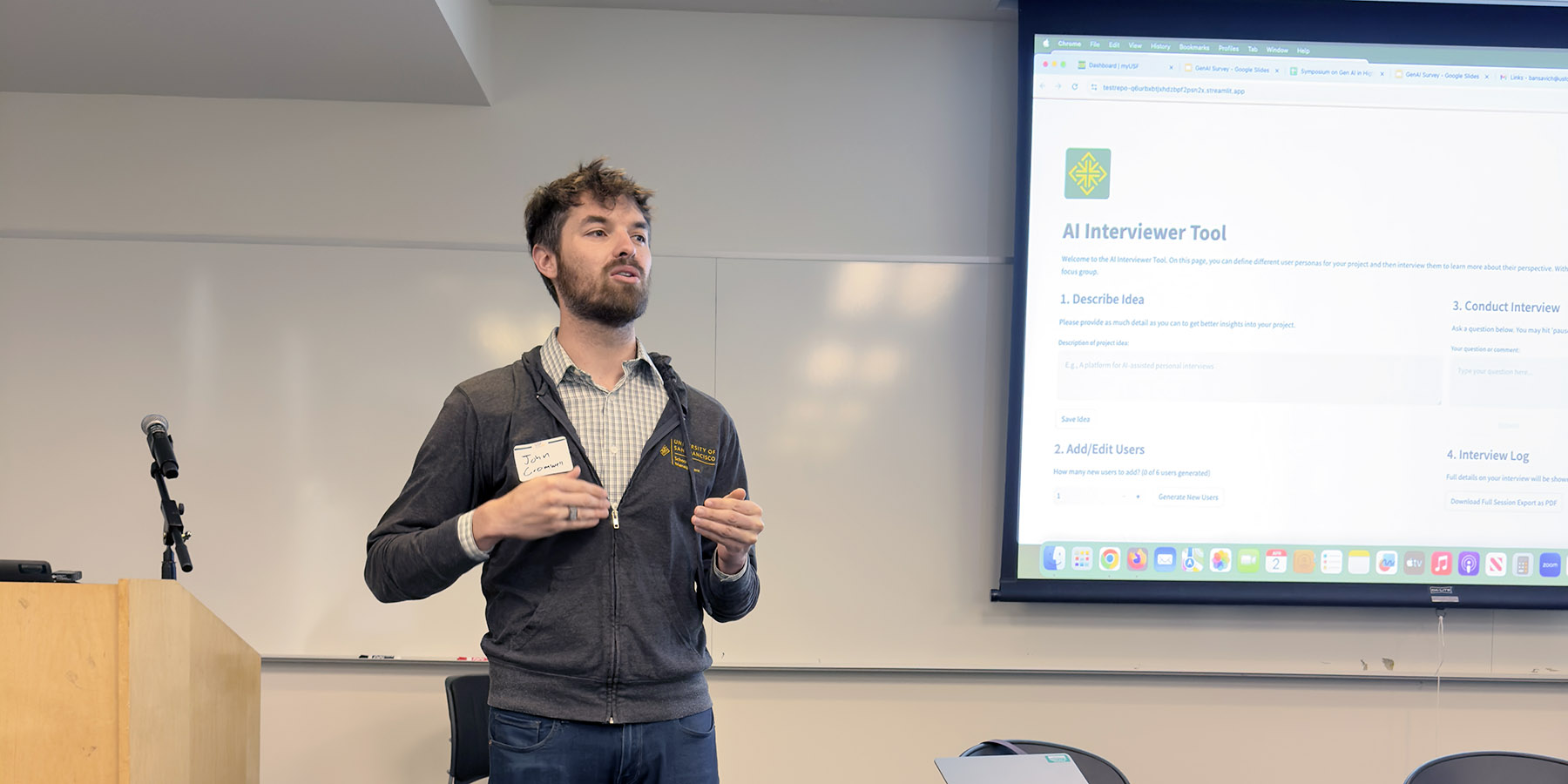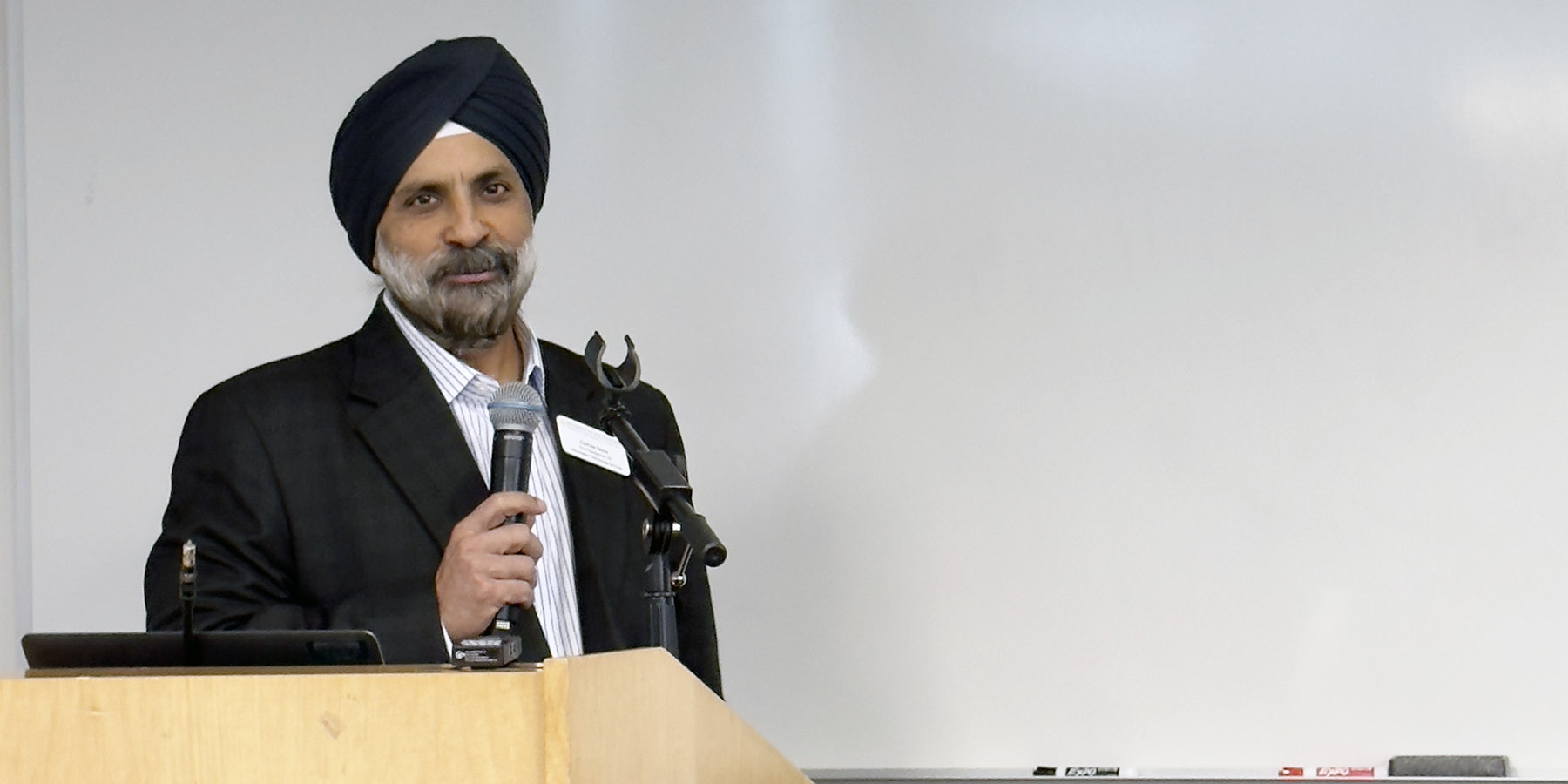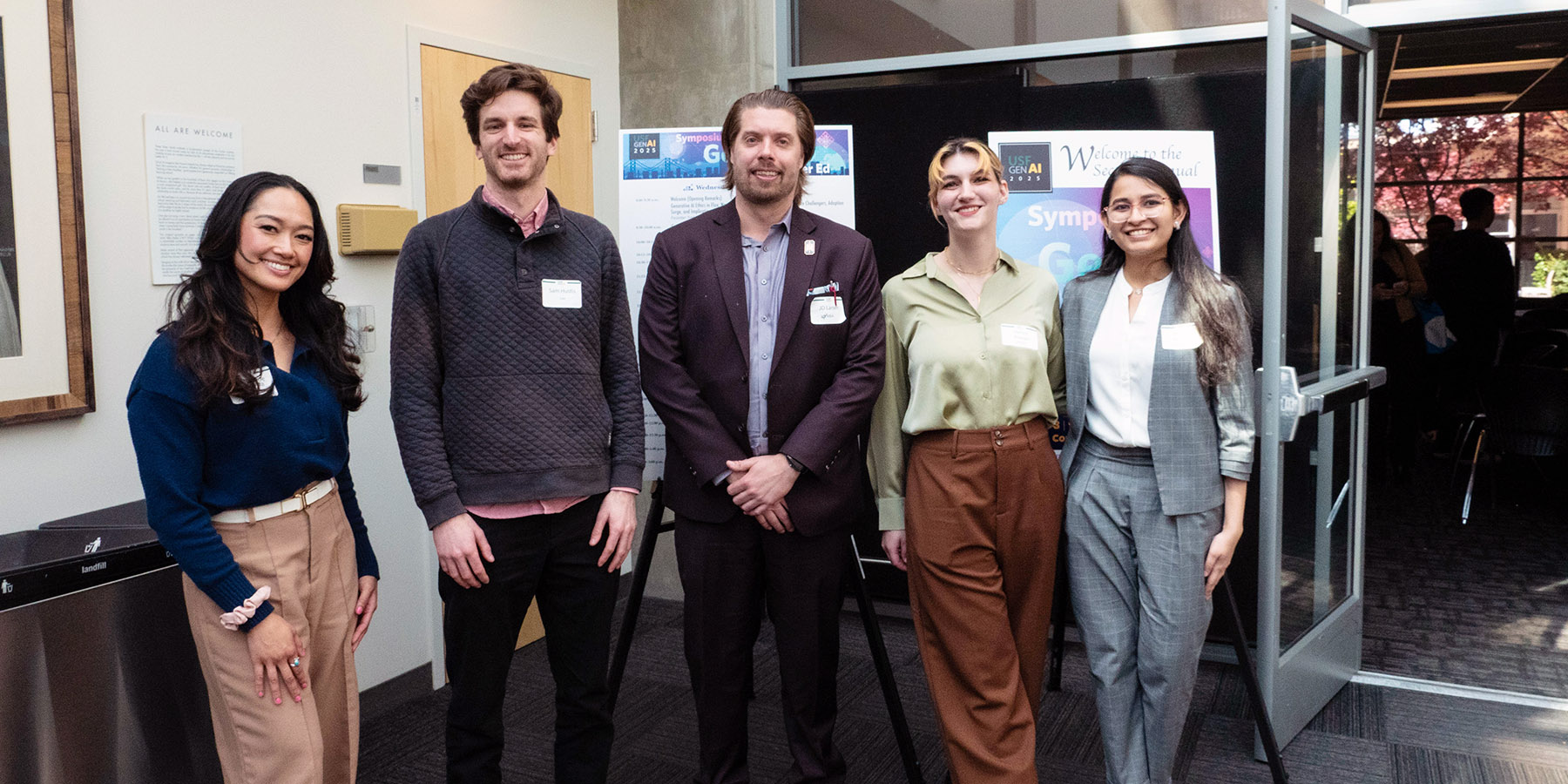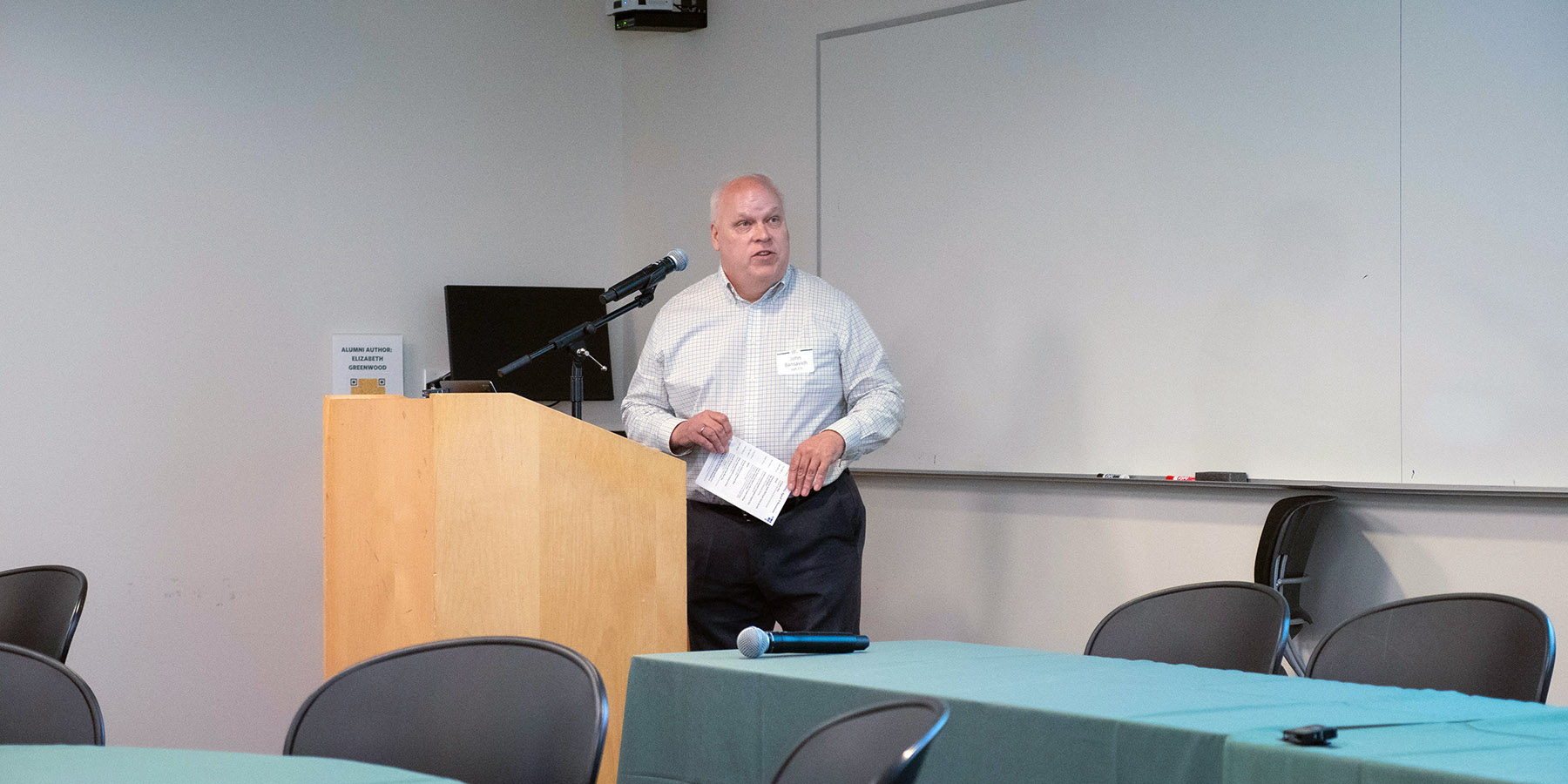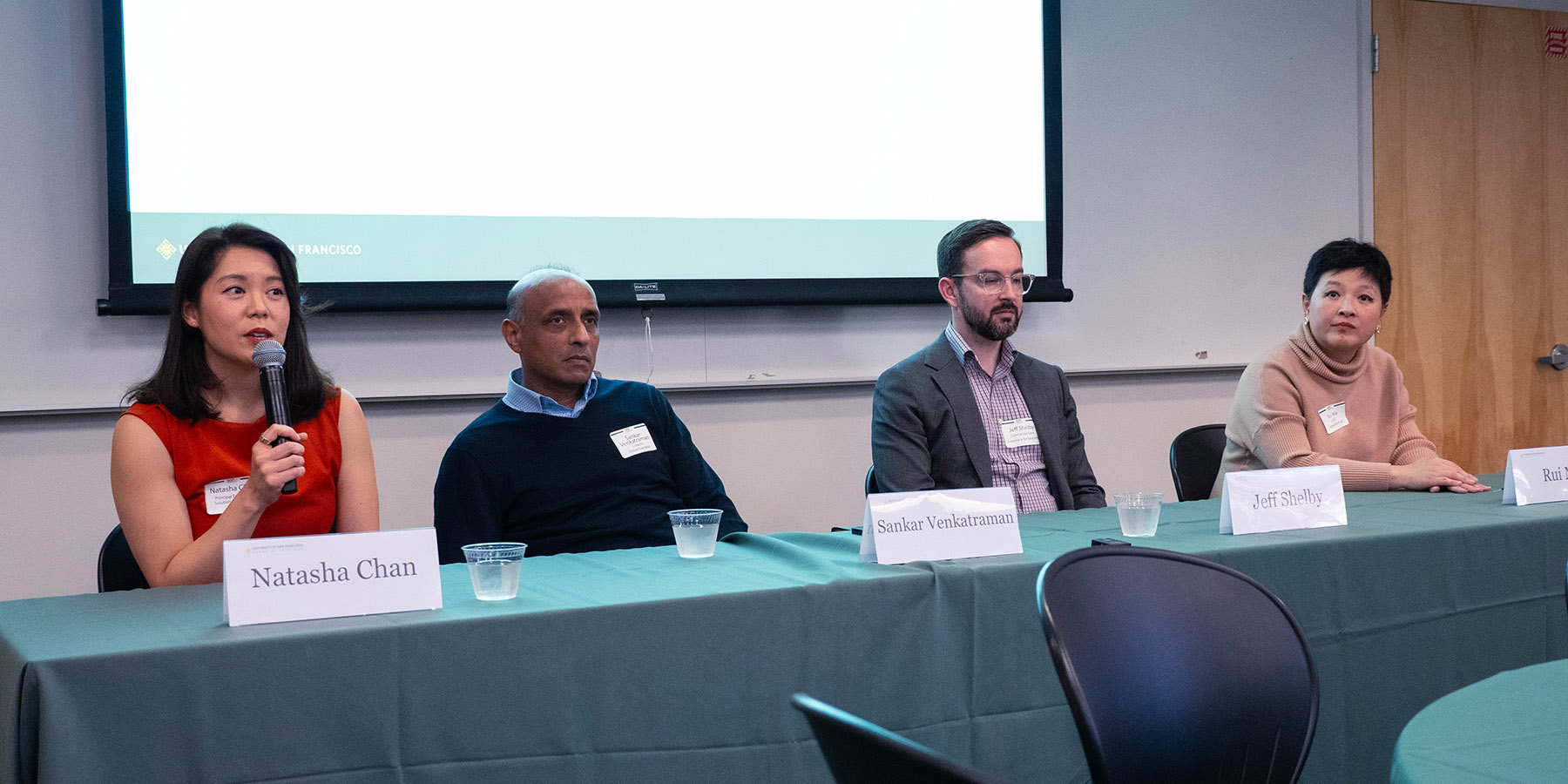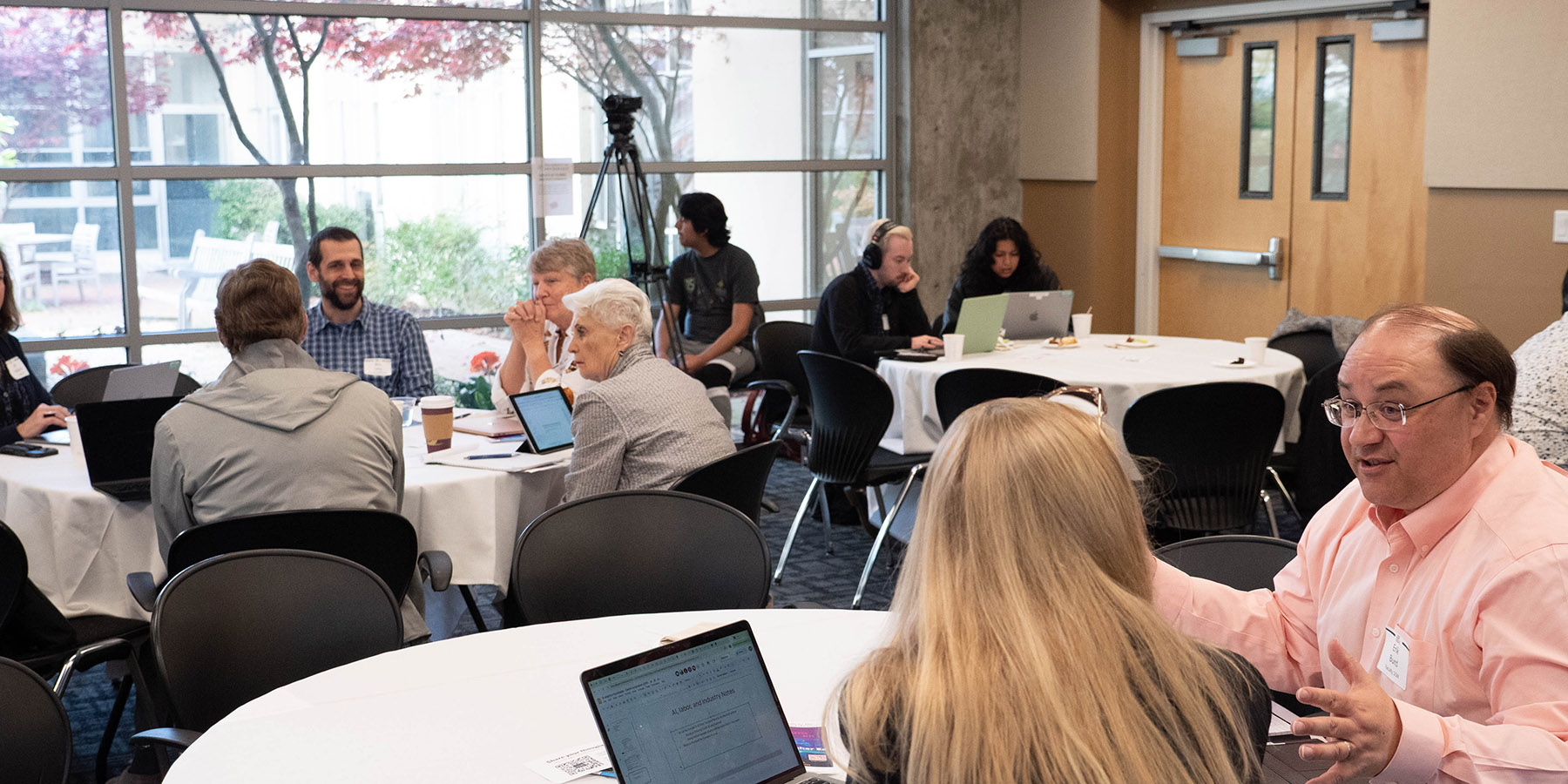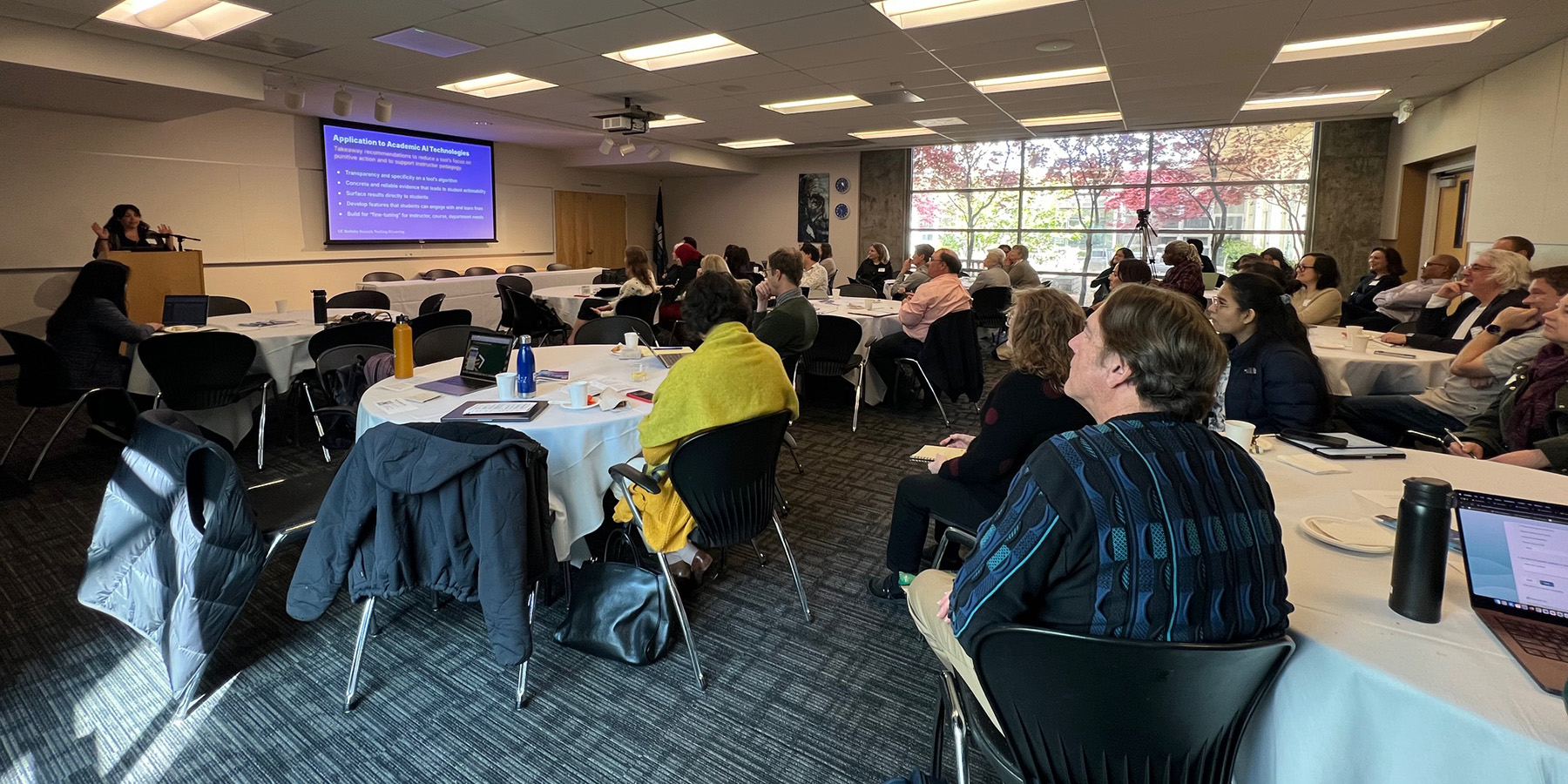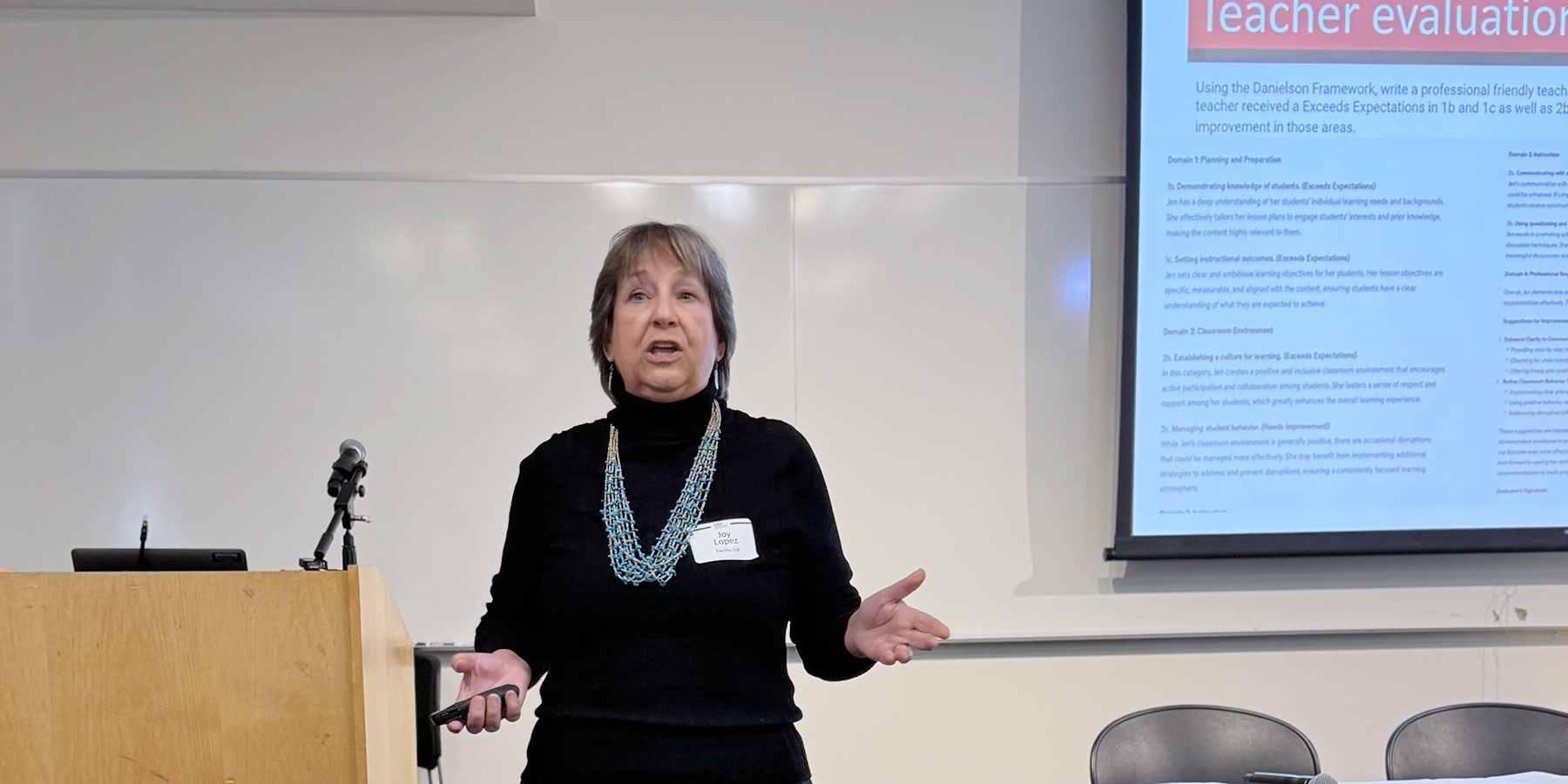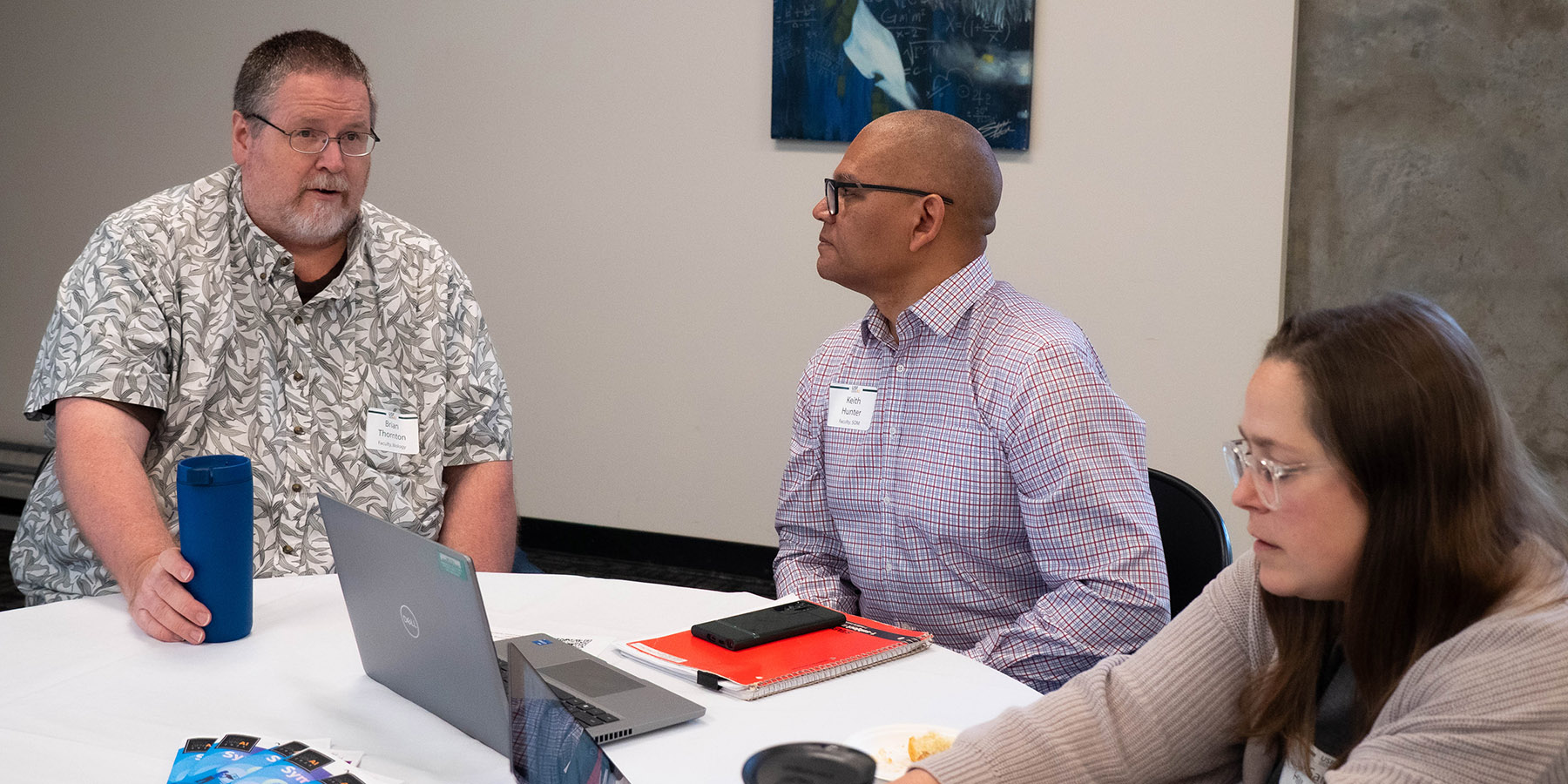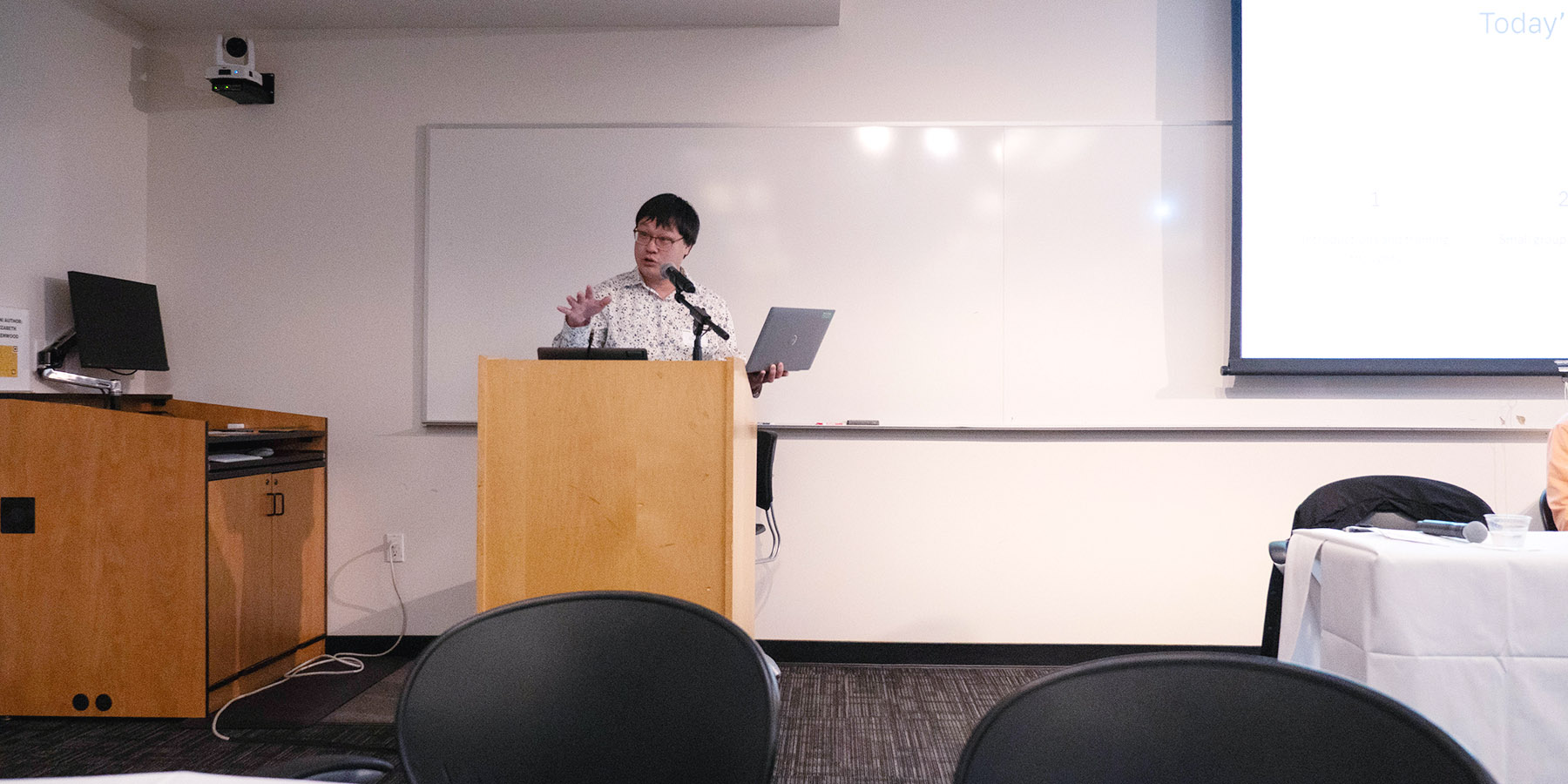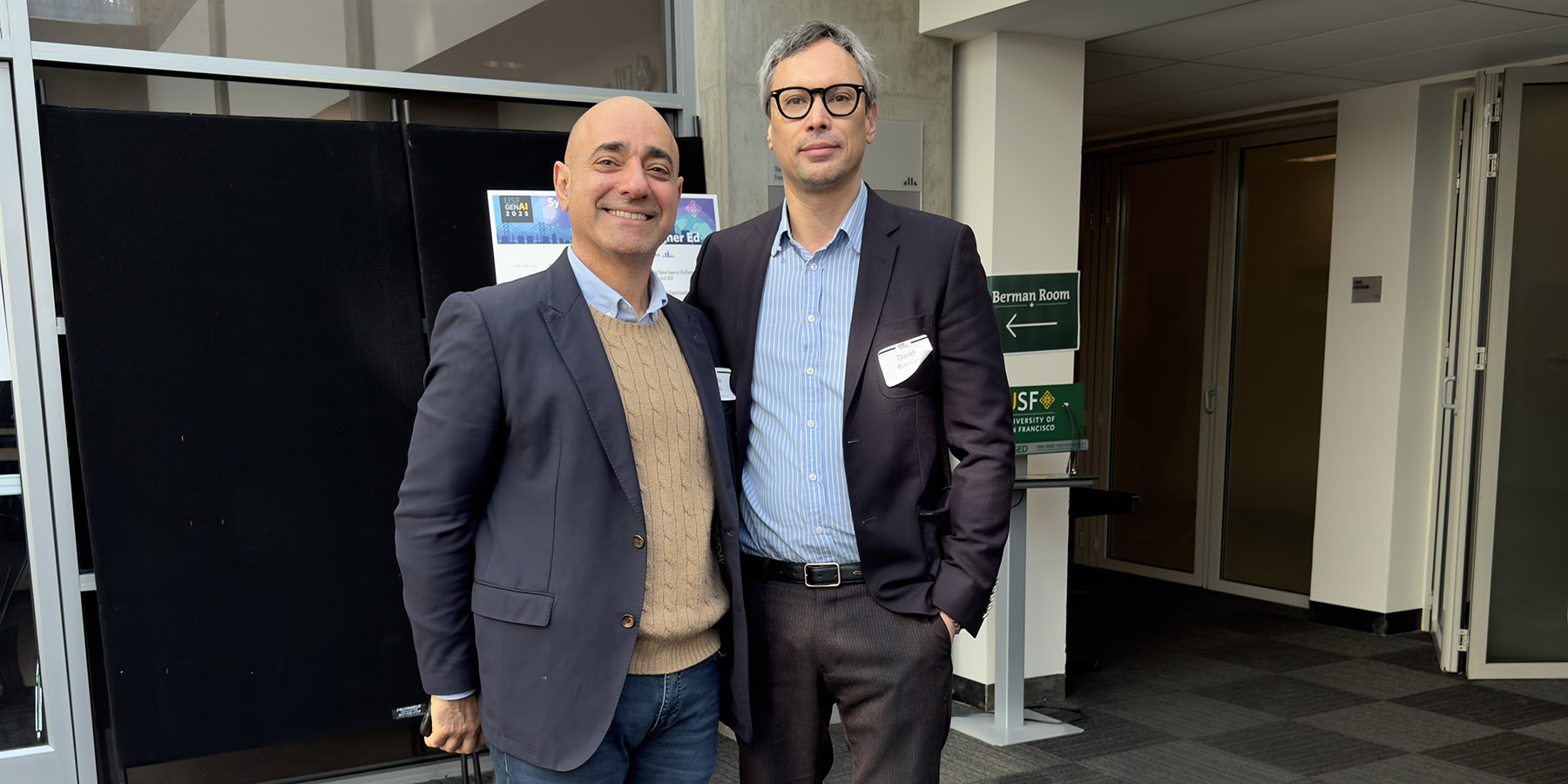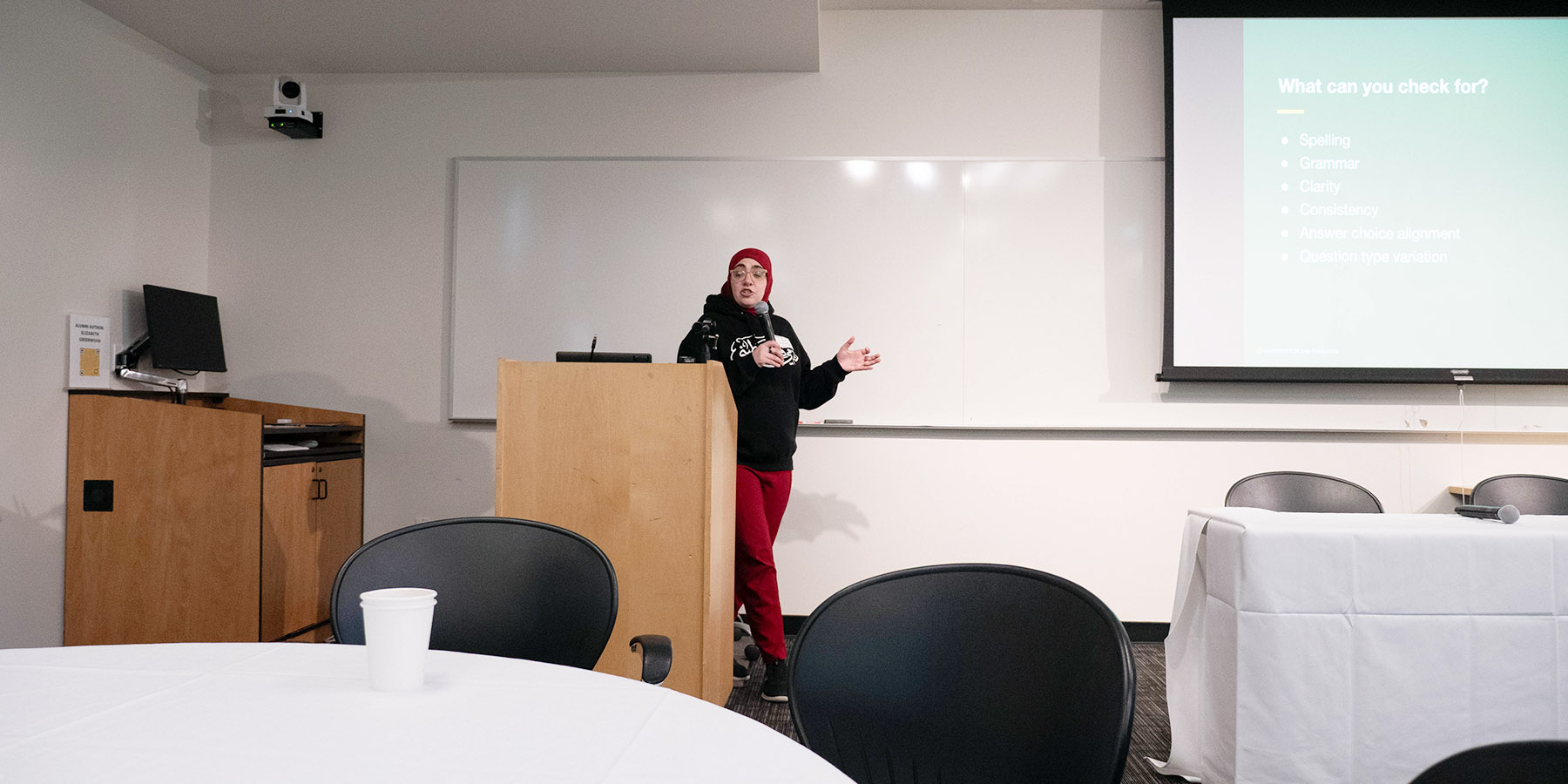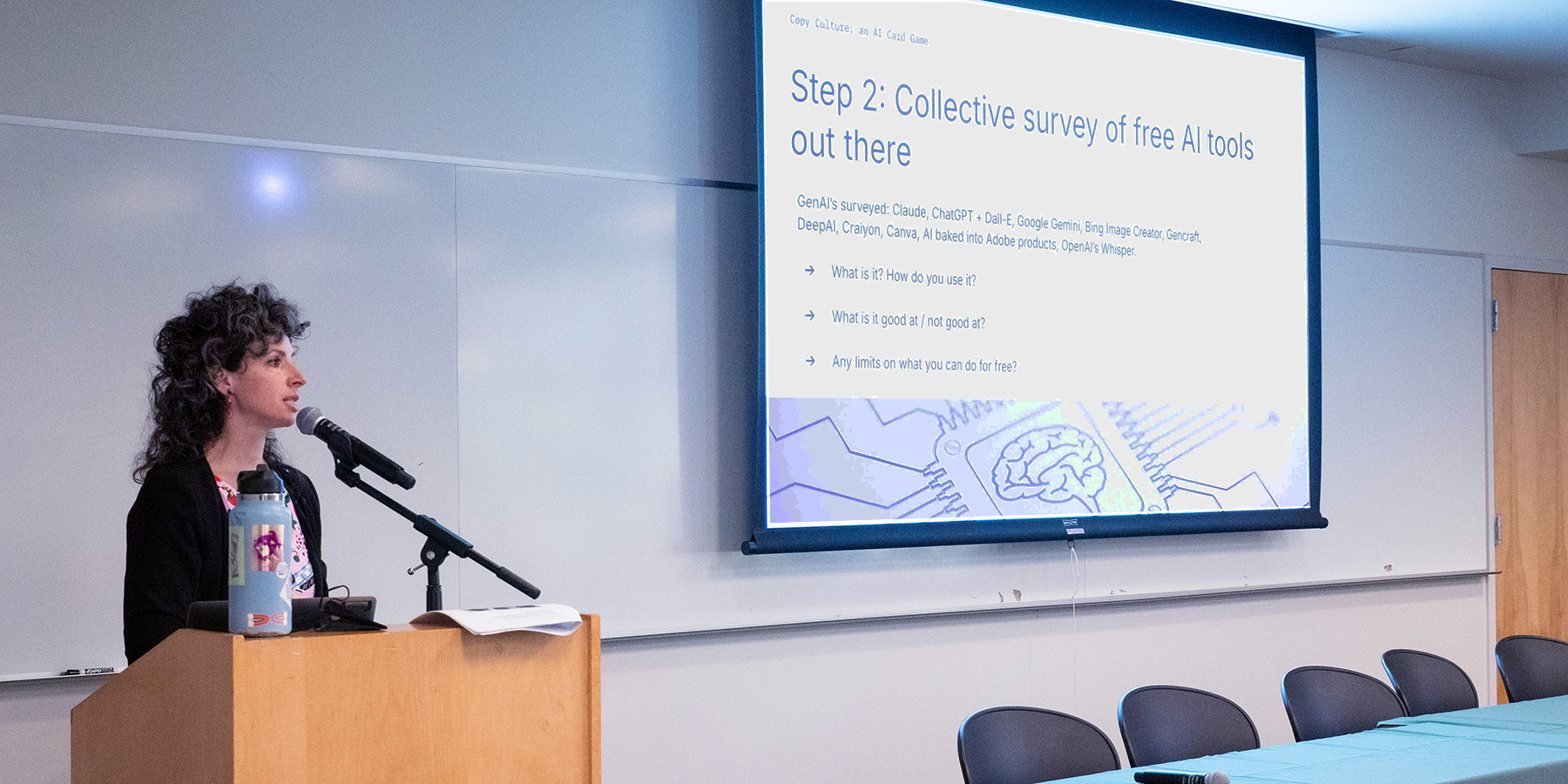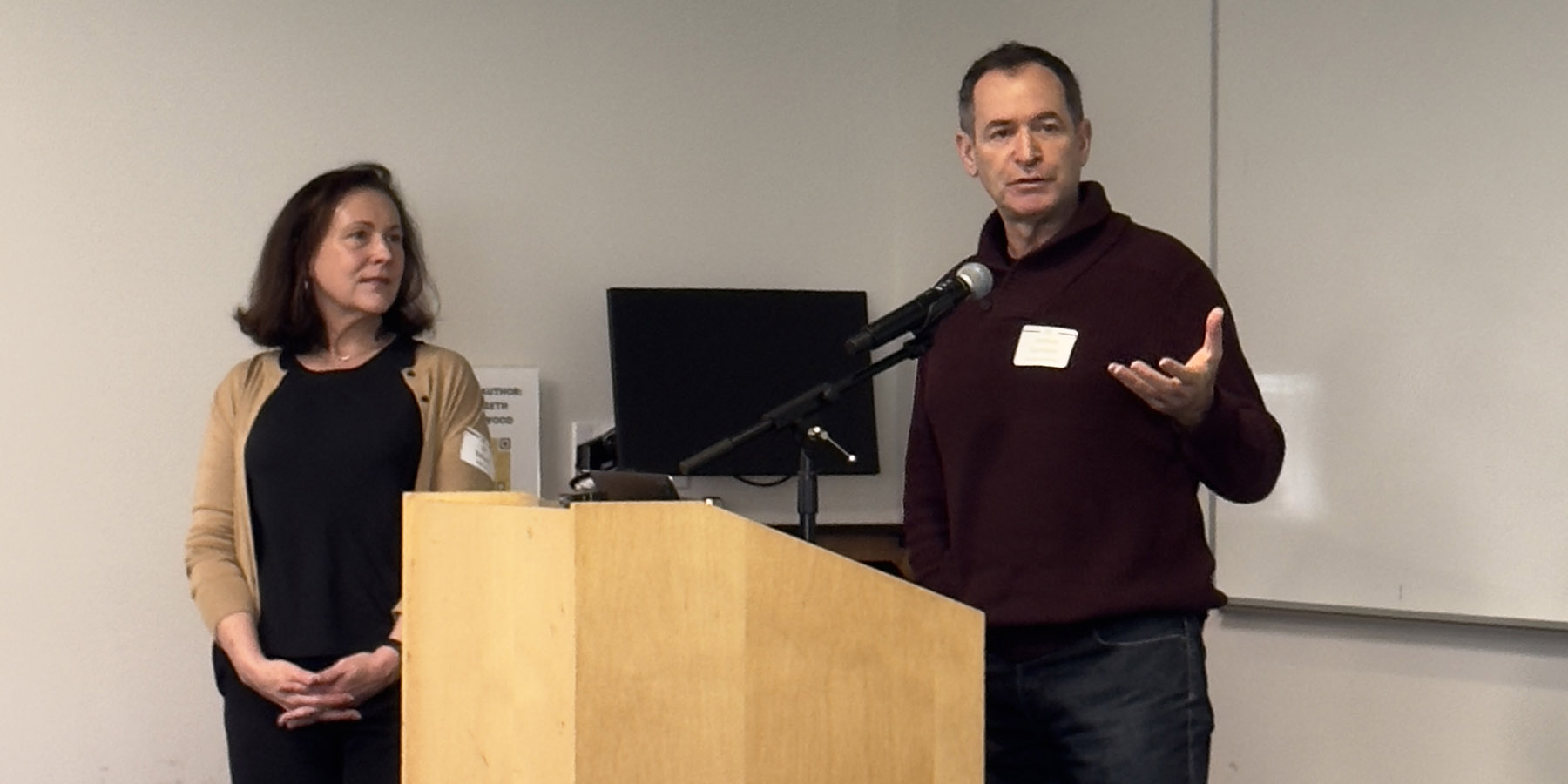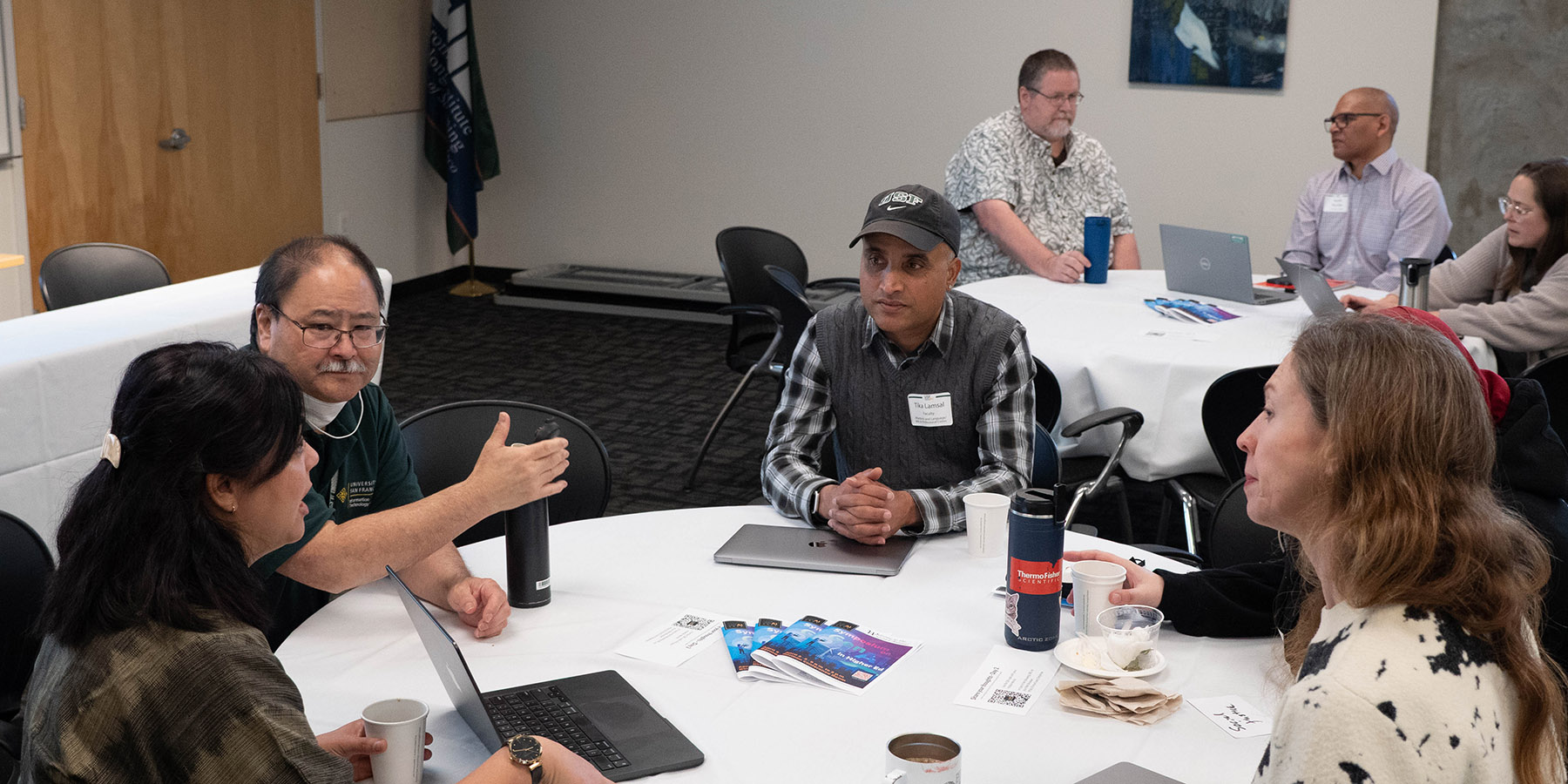ETS/CTE GenAI Symposium 2025
The second annual Symposium on GenAI in Higher Education is a collaboration between ETS and the Center for Teaching Excellence (CTE).
The Symposium on GenAI in Higher Education provides an opportunity to discuss how GenAI can improve learning and teaching, and prepare students for a GenAI-driven world. The Symposium includes talks, panels, workshops, and presentations on topics like leveraging GenAI for classroom success, the ethical use of GenAI in education, enhancing learning outcomes using GenAI, and hearing from students on their experiences and expectations of GenAI on their learning and job readiness. The Symposium is aimed at understanding GenAI's benefits and challenges and sharing ideas on how to use GenAI to make education better for everyone. Join us as we learn from each other, and help shape how GenAI will influence the future of education at USF!
View Session Presentations & Recordings
| Time | Presenter(s) | Title |
|---|---|---|
| 9:00–9:05 a.m. | Nicole Gonzales Howell, Rhetoric and Language | Welcome |
| 9:00–9:30 a.m. |
Freddie Seba, SONHP |
Generative AI Ethics in Flux: Navigating Policy Shifts, Emerging Open-Source Challengers, Adoption Surge, and Implications/Applications for Healthcare, Education, and USF Overview: Generative AI is evolving rapidly in the technology and its adoption in the workplace, healthcare, education, and ecosystem. 2024 had some fixed assumptions, which could tell us where the industry and policy would inform our GenAI strategy. All of that was disrupted. Policy changes at the federal and state levels in the U.S. and California include a change of administration, the repeal of the White House Bill of Write guidelines, and a new bipartisan Senate committee report. BigTech is controlling and leading the GenAI race with its capability to race billions of dollars to train better models. |
| 9:30–10:00 a.m. |
Jill Ballard (ETS) and Josh Gamson (CAS) Recorded session
|
Considering Discipline-focused GenAI Guidelines, Naming Needs and Opportunities Overview: Beyond foundational guidelines for using GenAI tools, individual academic disciplines often employ distinctive writing and development strategies that align with their teaching practices and larger fields or industries. In this evolving context, session participants are asked to consider what factors discipline-specific GenAI guidelines could address, and how such guidelines could be utilized within a program or department to support rich, equitable learning experiences in combination with GenAI. Instructors are encouraged to bring their perspectives as discipline practitioners to the discussion. |
| 10:00–10:15 a.m. |
Liat Berdugo, Art & Architecture |
Copy Culture: AI Card Game Overview: My presentation is about an assignment integrating generative AI in an upper division Design studio elective titled Copy Culture - Design, Remix, and Reproduction in the Post-Internet Age at the University of San Francisco. Because the class uses remix theory to complicate traditional notions of “authorship” and “originality,” This year, I introduced an assignment with generative AI to further critical thinking on these topics. |
|
10:15–10:30 a.m. |
BREAK | |
|
10:30–11:10 a.m. |
Jonathan Hunt, Faculty Panel and Learning Writing Center Staff |
Learning from GenAI in the USF Writing Center Overview: The Writing Center serves all USF undergraduates and graduate students. In confidential individual appointments, our student peer coaches and faculty consultants work closely with students on every kind of writing assignment imaginable. From student consultations, we've learned a lot about the evolving and widely varying use of GenAI writing tools. In this roundtable of faculty consultants and student coaches, we'll explore the evolving puzzle of GenAI through engaging participants to share their own experiences, and sharing some representative stories of student work. |
| 11:15–11:30 a.m. |
Jonathan Cromwell, SOM |
Using AI to Enhance Learning: New Tools for Students and Faculty at USF Overview: We're all aware of the threat AI poses to learning, but if designed correctly, it can also be leveraged as a powerful tool to enhance student learning and engagement in the classroom. This presentation will share a suite of new AI tools developed by the E&I Initiative @ USF that can be used by anyone on campus to enhance student learning in their classes. |
|
11:30–12:00 p.m. |
Mana Azarm, SOM |
AI Safety Forecasting Workshop Overview: This session will be ideally a 1-hour workshop (with an optional additional 15 min Q and A session) focused on helping people understand how to forecast AI developments. It is focused specifically on awareness of current and future AI trends at a high level and is meant for a broad audience. As such it will omit more detailed review of technical parts of modern AI development. It starts with a presentation of the Current State of AI, then continues to a demo, and finally we will have an interactive forecasting workshop with the audience. |
| 12:00–1:00 p.m. |
Moderator: Tom Maier, Associate Vice Provost- Professional Education and Business Partnerships, USF Panelists: Natasha Chan, Principal Education Solution Consultant, Adobe; Sankar Venkatraman, LinkedIn Global Evangelist, LinkedIn; Jeff Shelby, Manager, Commercial Sales, Grammarly for Education, Grammarly; Rui Ma, COO, AlphaWatch.ai Recorded session |
AI Workforce Readiness: Insights on AI from Industry Experts on Preparing Today's Students for Tomorrow's Jobs Overview: Open discussion around key trends in AI adoption across industries and the evolving skills landscape. Panelists to share real insights on how businesses are integrating AI, the competencies they seek in graduates, and strategies for bridging the education-to-employment gap. |
| 1:00–2:00 p.m. |
Student Panel (Moderator) Opinder Bawa, USF Vice President and Chief Information Officer Panelists: Harley Zerega, Physics; Monique de Villa, Digital Health Informatics; JD Larsen, JD/MBA; |
Generative AI in Higher Education: Student Perspectives & Lunch |
| Time | Presenter(s) | Title |
|---|---|---|
| 9:00–9:40 a.m. |
Phil Choong, Rhetoric and Language |
AI Skeptics Panel Overview: In this roundtable discussion, facilitators will help moderate a conversation around why folks are skeptical of AI and/or question whether or not genAI has a "place" in their classrooms/curricula. This space is meant to open conversations around refusing, resisting, and complicating the use of AI. |
| 9:45–10:00 a.m. | BREAK | |
|
10:00–10:15 a.m. |
Nour Al-muhtasib, Biology |
Enhancing Exam Quality with GenAI: Clarity, Question Type, and Beyond Overview: I will be discussing how to use ChatGPT to enhance exam quality. This includes scanning for spelling and grammar issues, but also analyzing for a variety in question type. You can use ChatGPT to ensure that your exam includes a good distribution of recall, analysis, and application questions. |
|
10:15–10:30 a.m. |
Catherine McChrystal, SOE Presentation Recorded session |
Student-Centered Approach to Academic Integrity Tools Overview: Academic integrity has traditionally had punitive connotations rooted in zero-tolerance plagiarism policies. However, when it comes to AI, questions about academic integrity are more nuanced. This presentation will discuss the challenges associated with using AI detection tools as a “solution” to academic integrity, and highlight the value in taking an approach that prioritizes equitable practices to foster a sense of accountability. The presentation will share findings from an AI-detection pilot that illustrate the benefits of cross-departmental collaboration and collection of feedback as one component in vetting new academic technologies so that they are not only compliant but also align with pedagogical philosophies. |
|
10:30–11:10 a.m. |
Jill Ballard (ETS), Erik Burd (SOM), Billy Riggs (SOM), David McGrane (CAS), Keith Hunter (SOM), Nicole Aponte Santiago (Biology) |
Panel: Faculty Participants in the ETS GenAI Certificate Program, Reflections & Future Views Overview: Addressing the increasing need for AI literacy and GenAI technical skills, ETS launched the GenAI Certificate Program in fall 2024, which has served over 190 faculty and staff to date. In this panel session, join faculty participants to learn more about their take on the certificate program, how their GenAI knowledge supports their teaching practices, and their thoughts about continuing or future training needs in this evolving context.
|
|
11:10–11:30 a.m. |
BREAK | |
| 11:30–12:00 p.m. |
Larry Ebert, SOM |
Assessing Student-AI Collaborated Work Overview: Introducing the Student-AI Collaboration Rubric, a means of assessing student work where students openly (and with teacher approval) use AI in support of fulfilling a course assignment. The model enables teacher assessment while also fostering AI literacy and competency: students' responsible, skillful, and ethical use of AI. The rubric reinforces the need to ensure critical thinking, original thinking, and creative thinking are preserved or even enhanced in an age of AI. |
|
12:00–12:30 p.m. |
Joy Lopez, SOE Recorded session |
Using Customized ChatGPTs for Analysis of Data Overview: Customized ChatGPTs can be used to analyze large amounts of data and assist you in understanding the data. These can be used for accreditation dashboards and grade analysis. |
|
12:30–1:00 p.m. |
Nicole Gonzales Howell & Megan Hutchinson, Rhetoric and Language & SOL Recorded session
|
Using AI: Two Stories and Some Work Time Overview: In this workshop, we will briefly share our stories of using AI in the classroom and then support faculty with their own exploration of the platforms we discuss and/or encourage them to explore others. The goal of the workshop is to allow folks to "play" with technologies and build on their skills from wherever they are. |
| 1:00–2:00 p.m. |
Chris Brooks (Computer Science) and Katherine Edwards (AVP, Enrollment Communications) |
Horizons in AI: Where we're headed and why Jesuit education needs to be a part of the conversation & Lunch |
